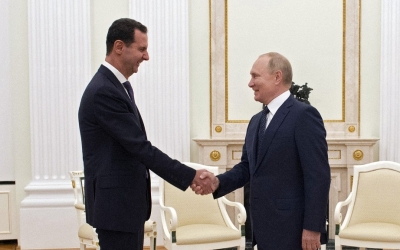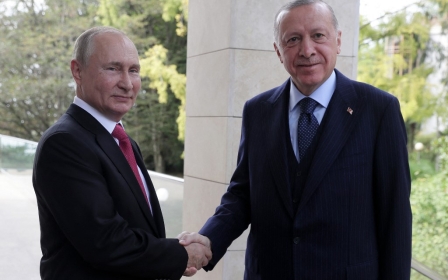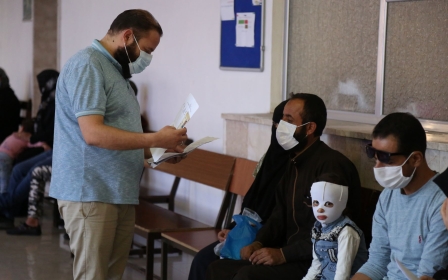Syria: US says it will not normalise or upgrade diplomatic ties with Damascus

The United States has no plans to "normalise or upgrade" diplomatic relations with the government of Syrian President Bashar al-Assad and also does not encourage others to do so, a US State Department spokesperson said on Wednesday.
The comments came in response to Reuters questions on whether Washington was encouraging and supporting a rapprochement between Jordan and Syria, after Jordan fully reopened its main border crossing with Syria on Wednesday.
New MEE newsletter: Jerusalem Dispatch
Sign up to get the latest insights and analysis on Israel-Palestine, alongside Turkey Unpacked and other MEE newsletters
The move was to boost the countries' struggling economies and reinforce a push by Arab states to reintegrate Syria after shunning it during its civil war.
"The United States will not normalise or upgrade our diplomatic relations with the Assad regime nor do we encourage others to do so, given the atrocities inflicted by the Assad regime on the Syrian people," a State Department spokesperson said in an email.
"Assad has regained no legitimacy in our eyes, and there is no question of the US normalising relations with his government at this time."
It was among the strongest comments to date on Syria from the administration of US President Joe Biden, whose Syria policy has largely focused on ensuring the permanent defeat of the Islamic State (IS) group and providing humanitarian aid to Syrian people.
'Will of all Syrians'
The US suspended its diplomatic presence in Syria in 2012 as the war escalated, and US-allied Arab states, including Qatar, Saudi Arabia and the United Arab Emirates (UAE) backed opposition groups fighting Assad.
The Trump administration last June imposed its most sweeping sanctions ever, targeting Assad and his inner circle to choke off revenue for his government in a bid to force it back to United Nations-led negotiations and broker an end to the country's decade-long war.
Arab states cut ties with Syria during the civil war, which the United Nations says has killed more than 350,000 civilians, with military casualties of more than 250,000, according to researchers.
The UAE and Syria restored diplomatic ties in 2018.
The Egyptian and Syrian foreign ministers met on Friday on the sidelines of the UN General Assembly in New York, in what Egyptian media said was the first meeting at that level for about a decade.
Officials in Jordan, a US ally, and Lebanon, have urged Washington to ease sanctions on Syria.
"We believe that stability in Syria, and the greater region, can only be achieved through a political process that represents the will of all Syrians and we are committed to working with allies, partners, and the UN to ensure that a durable political solution remains within reach," the State Department spokesperson said.
Assad has recovered most of Syria with support from Russia and Iran but some areas remain outside his control.
Turkish forces are deployed in much of the north and northwest, the last rebel stronghold, and US forces are stationed in the Kurdish-controlled east and northeast.
Middle East Eye delivers independent and unrivalled coverage and analysis of the Middle East, North Africa and beyond. To learn more about republishing this content and the associated fees, please fill out this form. More about MEE can be found here.






